This morning, the National Assembly discussed the draft Law on Public Employees (amended). The draft law adds provisions allowing public employees to contribute capital to, participate in the management and operation of, non-public enterprises, cooperatives, hospitals, educational institutions, and scientific research organizations, except in cases where the law on anti-corruption or specialized law provides otherwise.
Delegate Nguyen Thi Viet Nga ( Hai Phong ) assessed that this is an open regulation for civil servants, creating opportunities for civil servants to exploit and promote their capacity, encouraging each individual to contribute to society, taking advantage of the intelligence and expertise of civil servants in the private sector.
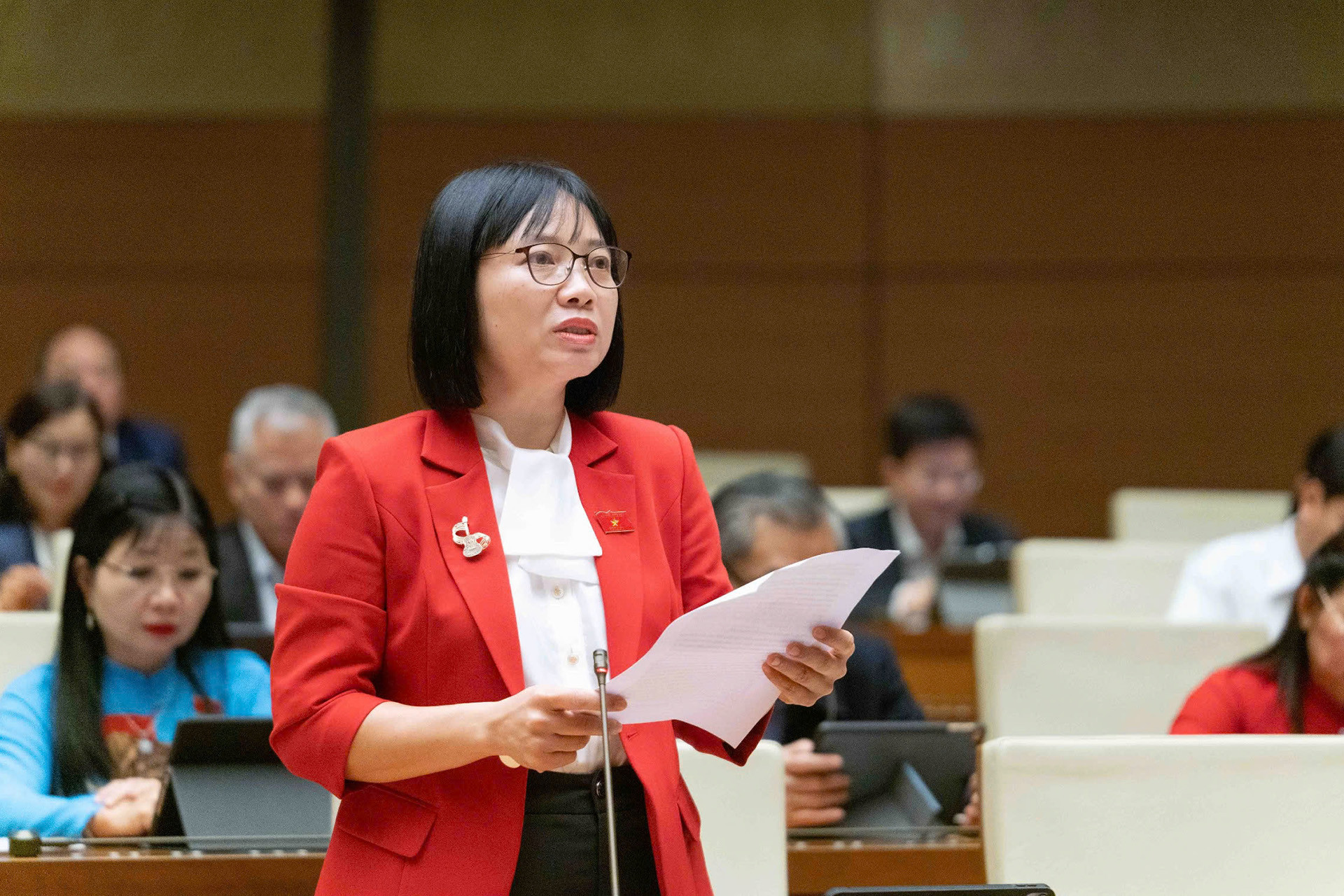
Delegate Nguyen Thi Viet Nga. Photo: National Assembly
However, delegate Viet Nga suggested that it is necessary to tighten regulations on the mechanism of controlling and preventing corruption. Analyzing the expansion as drafted, Ms. Nga commented, "there may be some potential risks such as conflicts of interest between positions in the public and private sectors". Especially for civil servants who hold management positions in both public and non-public units, operating in the same field, it may lead to the abuse of positions in the public sector for the benefit of units in the private sector.
Delegates said that there should be regulations that do not allow management officials to participate in the management and operation of private businesses and activities in the same field in which they work. Ms. Nga proposed regulations on declaration, transparency, supervision and accountability of capital contribution and management participation of officials in the private sector, especially management officials.
Speaking on the same issue, delegate Nguyen Tam Hung (HCMC) analyzed that the draft law has not clarified the scope of the prohibition on participation in business activities. He requested the drafting agency to clarify that civil servants are not allowed to invest, contribute capital, operate or guarantee for enterprises and organizations that have the same professional field as their unit.
According to him, expanding the scope of the ban like this is to prevent the situation of "one foot in, one foot out", avoiding conflicts of interest, especially in the fields of health, education, and scientific research - where the boundary between public service and private interests is easily confused.
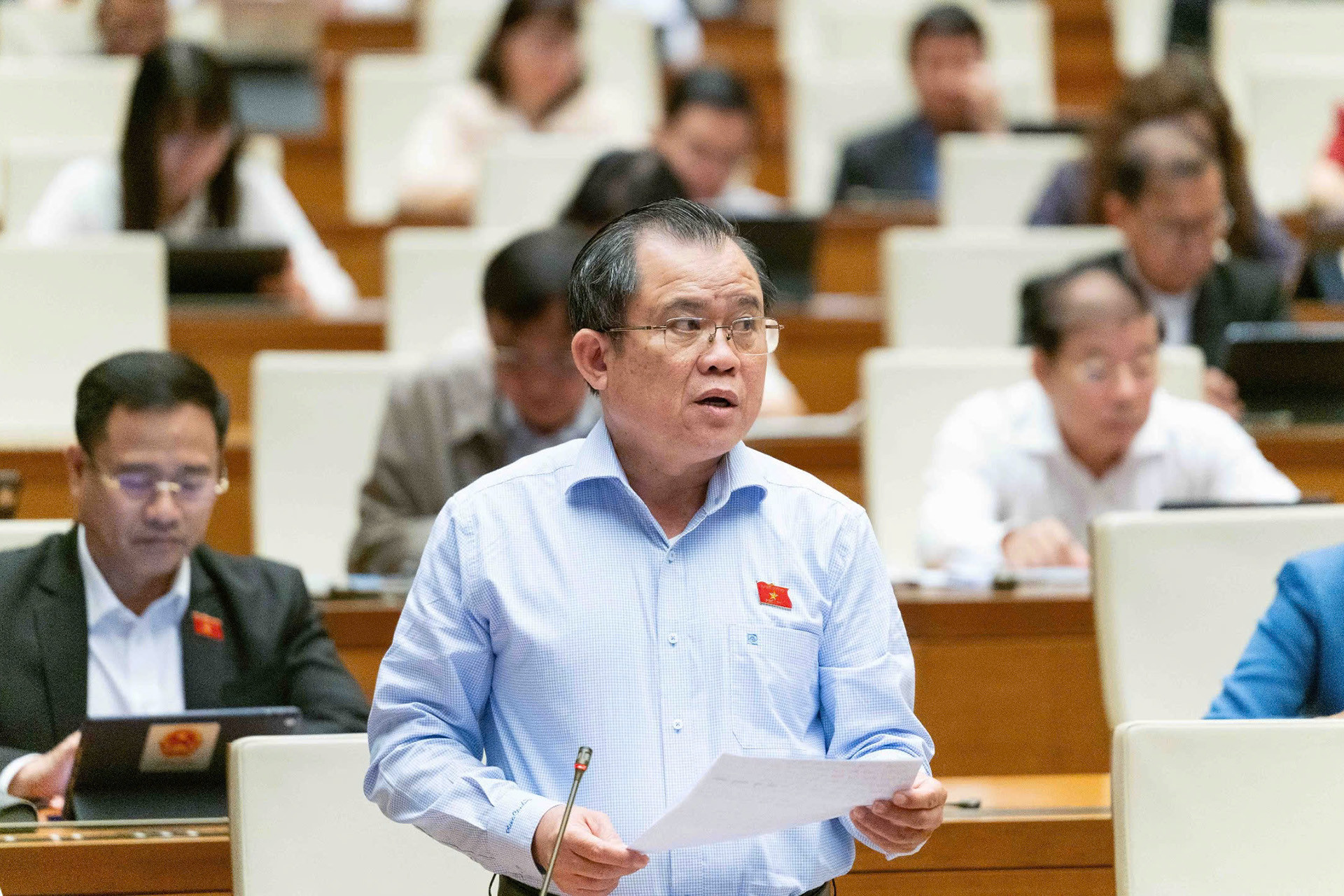
Delegate Nguyen Tam Hung. Photo: National Assembly
Delegate Pham Van Hoa (Dong Thap) agreed with the regulation that civil servants have the right to sign contracts for overtime work. However, as for the heads of public service units, Mr. Hoa said that if they are allowed to sign contracts for work outside the same field, it will not be objective in management.
“A person who is the director of a public service unit, but signs a contract to work at another unit in the same field, even holding a management position, also working as a director, is not objective,” the delegate analyzed. He said that only officials and deputies of the head should be allowed to sign a contract to work outside of their main duties, but the head should not be allowed.
“If you want to work outside, you should quit and go out to work. You cannot be a leader in a state agency and also a director or do management work for a unit outside the same industry. That can easily lead to conflicts of interest, self-interest, and affect fairness in management,” delegate Pham Van Hoa emphasized.
Debating with delegates Nguyen Thi Viet Nga and Nguyen Tam Hung, delegate Tran Van Lam (Bac Ninh delegation) said that it is unreasonable to stipulate that civil servants are not allowed to operate businesses or do business because they can take advantage of their public duties.
Mr. Lam stated the reality that if an official is doing very well in that field, he must develop it in that field to expand outside.
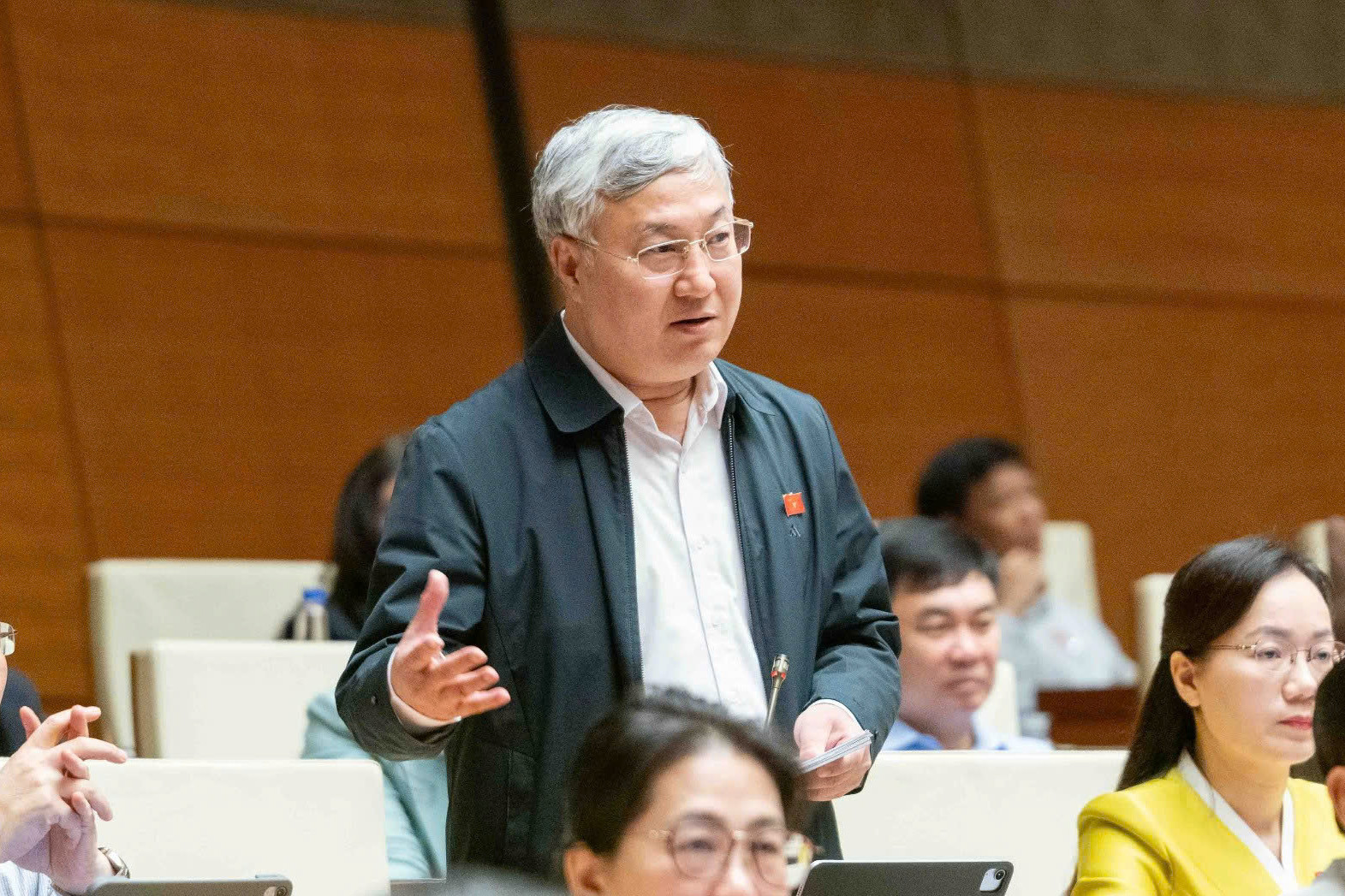
Delegate Tran Van Lam (Bac Ninh delegation). Photo: National Assembly
"Now the law has restrictions, only allowing business activities in areas that are not people's forte or advantage, so it is considered giving but also almost not giving. This is unreasonable and this is also a manifestation of the mindset that if you can't manage it, then ban it," the delegate argued.
According to Mr. Lam, the core issue is to establish a management mechanism in public service establishments, "so that it cannot be exploited or implemented if people have bad intentions."
Source: https://vietnamnet.vn/vien-chuc-chan-trong-chan-ngoai-co-nen-vua-lam-lanh-dao-vua-lam-giam-doc-2462336.html





![[Photo] General Secretary To Lam visits Long Thanh International Airport Project](https://vphoto.vietnam.vn/thumb/1200x675/vietnam/resource/IMAGE/2025/11/13/1763008564398_vna-potal-tong-bi-thu-to-lam-tham-du-an-cang-hang-khong-quoc-te-long-thanh-8404600-1261-jpg.webp)


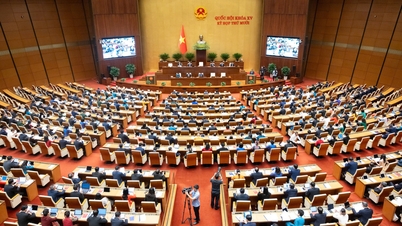

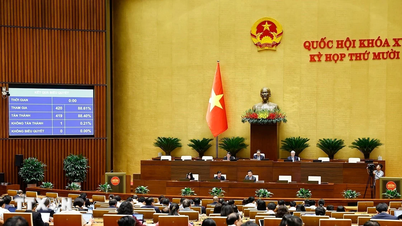



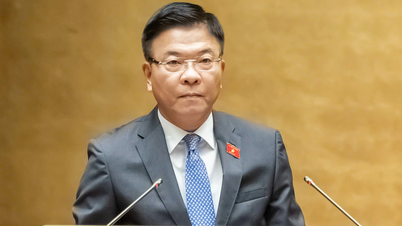
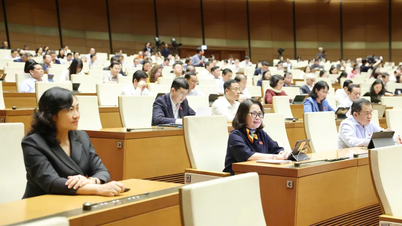





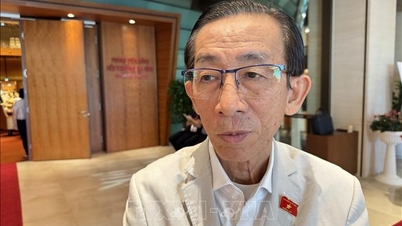










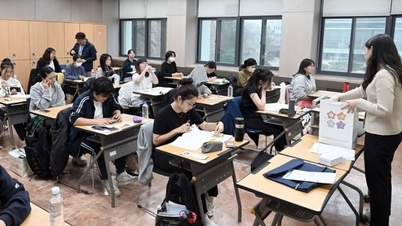









































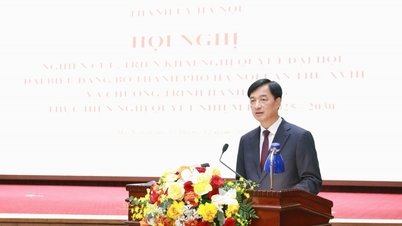



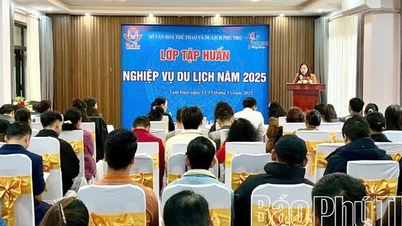
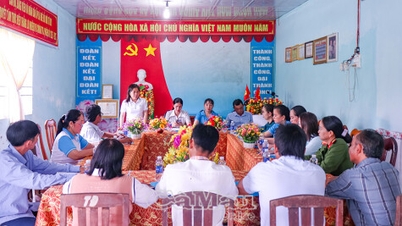

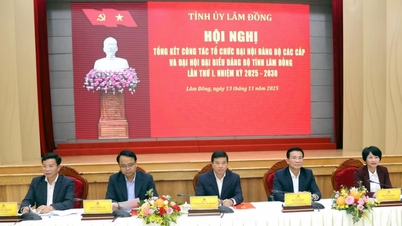

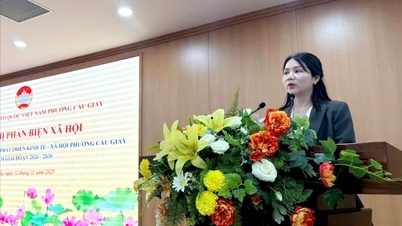


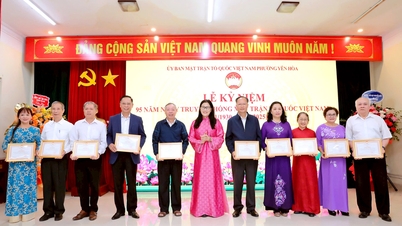
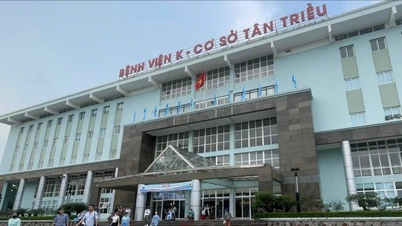






![Dong Nai OCOP transition: [Article 3] Linking tourism with OCOP product consumption](https://vphoto.vietnam.vn/thumb/402x226/vietnam/resource/IMAGE/2025/11/10/1762739199309_1324-2740-7_n-162543_981.jpeg)





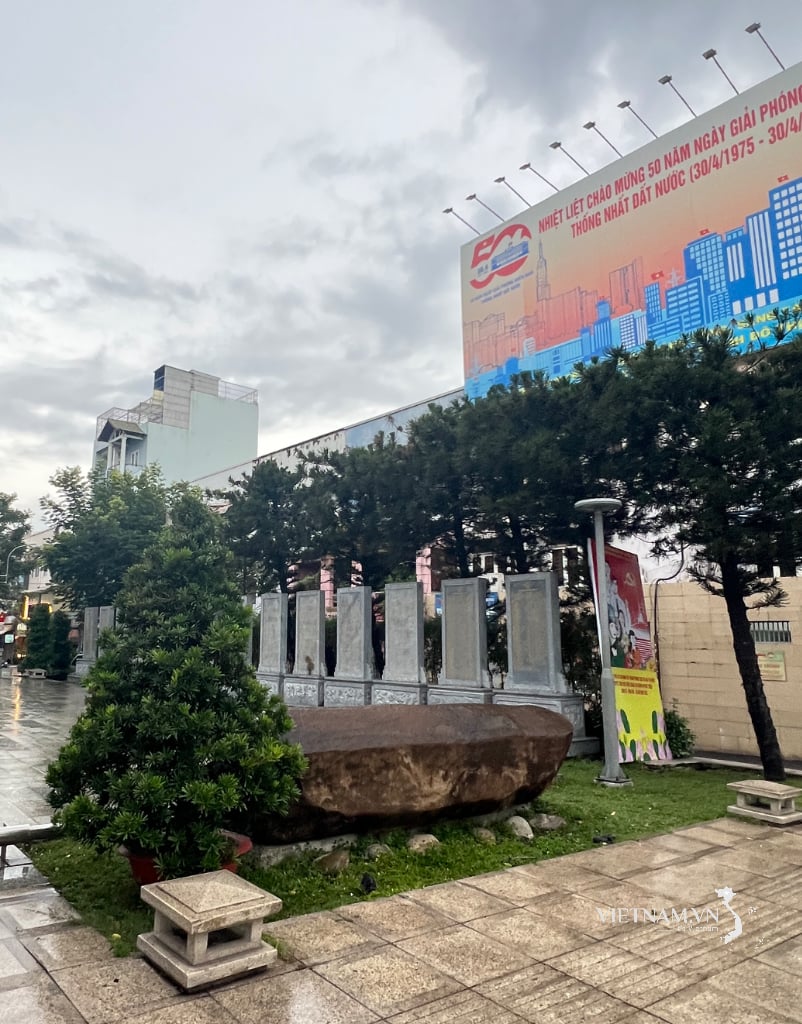

Comment (0)